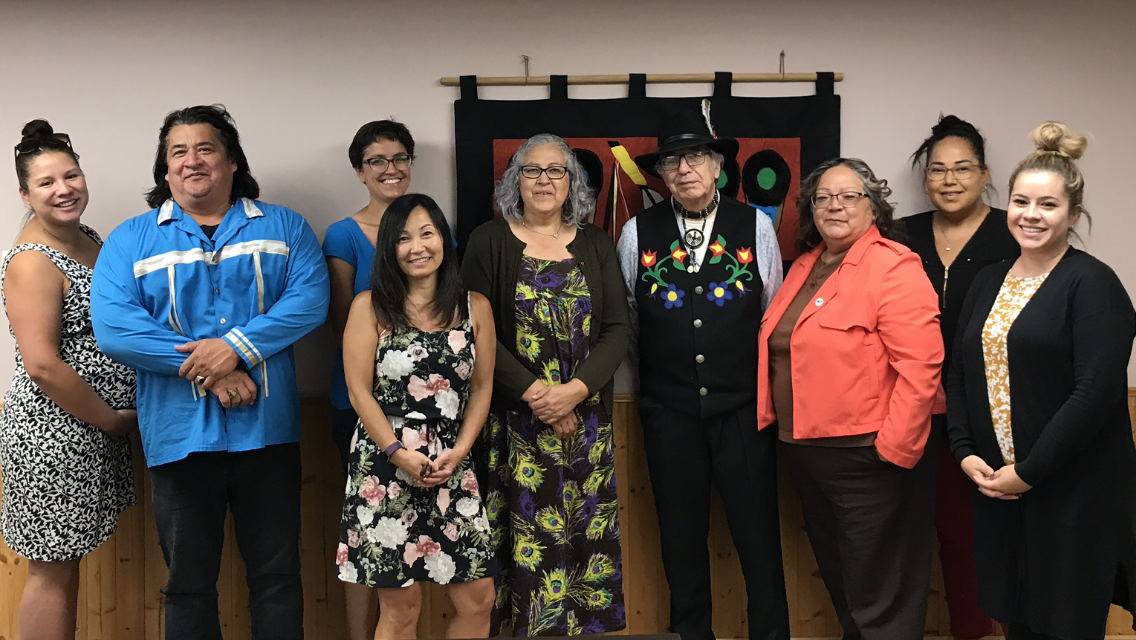Profile:
The Anthropology and Indigenous Peoples of Turtle Island (North America), ANT241
The Anthropology and Indigenous Peoples of Turtle Island (North America), ANT241H is a community driven course by an Indigenous Action group (IAG) made up of members of the Mississaugas of the Credit First Nation (MCFN) with other Indigenous scholars, administrators and faculty. The overall goal of the course is to establish an Indigenous and settler alliance of solidarity that supports the MCFN goals of truth (through public knowledge and recognition of their history), and reconciliation (through support and equitable sustenance of Indigenous pedagogy, knowledge systems, and research methodologies in educational institutions).

Program Details
Instructor / Program Coordinator(s):
Indigenous Action group (IAG) and Sherry Fukuzawa, Assistant Professor, Teaching Stream & Associate Chair, Department of Anthropology, University of Toronto Mississauga
Profile(s):
External Partners Faculty & Staff Students
Division:
University of Toronto Mississauga
Benefits to Students:
Students engage with a local Indigenous community and learn about the history of the land upon which they study every day. Students also have the opportunity to participate in a series of workshops and field trips so that they can experience the importance of Indigenous presence and the acceptance of different ways of knowing in the Academy.
Benefits to External Partners and the Community:
This course will form the foundation for sustained presence and recognized decision-making of the Mississaugas of the Credit First Nation (MCFN), as a local Indigenous community in an educational institution, and most importantly as a decision-maker on the post-secondary education of both Indigenous and non-Indigenous students.
Benefits to the University:
This course addresses the University’s response to the Truth and Reconciliation Commission’s Calls to Action. “Truth and reconciliation is about the establishment of right relationships– and that requires deep engagement… Our collective goal [is] to genuinely embrace Indigenous presence. If the University as a whole works to meet that ambition, all members of the University community can learn from unique Indigenous perspectives, allowing ourselves to be fundamentally challenged and deeply enriched.” (University of Toronto Steering Committee, 2016, p.31).
Information for Interested Students:
Visit the University of Toronto, Mississauga’s Department of Anthropology page to find additional information about this course, including eligibility requirements and when this course will be offered.
Advice for Faculty and Staff Interested in Creating a Similar Experiential Learning Opportunity:
Community engaged course planning and initiatives must begin in the community or organization that you wish to partner with. A partnership must be equitable and mutually respected. This means that the community or organization should drive the goals of the course, and then faculty and staff can develop the pedagogy to align those community goals with student learning objectives and experiential learning experiences. It is important to have a memorandum of understanding or a community partnership agreement to establish the roles and responsibilities within the course.
Indigenous Action group (IAG) at the Mississaugas of the Credit First Nation (MCFN)
Details
Partnership Based
Curricular
Unpaid
